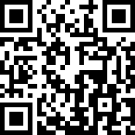
Event Date
A recording of this presentation is available here.
DOUG WEBER, PHD
Akhtar and Bhutta Professor
Department of Mechanical Engineering and The Neuroscience Institute
Carnegie Mellon University
Host: Wilsaan Joiner, PhD, wmjoiner@ucdavis.edu
This is an in-person event. Please register here: https://tinyurl.com/DecDougWeber

Registration for remote attendance is limited to colleagues from the Sacramento campus and those working remotely is available here: https://tinyurl.com/Neuroeng-Dec2024
Abstract
Significant advances in materials and microelectronics over the last decade have enabled clinically relevant technologies that measure and regulate neural signaling in the brain, spinal cord, and peripheral nerves. These technologies provide new capabilities for studying basic mechanisms of information processing and control in the nervous system, while also creating new opportunities for restoring function lost to injury or disease. Neural sensors can also measure the activity of motor neurons to enable direct neural control over prosthetic limbs and assistive technologies. Conversely, these neural interface technologies can stimulate activity in sensory and motor neurons to reanimate paralyzed muscles. Although many of these applications rely currently on devices that must be implanted into the body for precise targeting, ultra-miniaturized devices can be injected through the skin or vascular system to access deep structures without open surgery. This talk will focus on efforts to develop wearable and injectable neural interfaces for restoring or improving motor function in people with paralysis due to stroke, spinal cord injury, ALS, and other neurological disorders.
Bio
Doug Weber is the Akhtar and Bhutta Professor of Mechanical Engineering and Neuroscience at Carnegie Mellon University. Dr. Weber received a Ph.D. in Bioengineering from Arizona State University and completed post-doctoral training in the Centre for Neuroscience at the University of Alberta. His primary research area is Neural Engineering, combining fundamental neuroscience and medical device engineering to understand the neural basis of sensory perception, motor control, and neuroplasticity and drive the development of neurotechnologies for restoring sensorimotor functions in patients. A founding member of DARPA’s Biological Technologies Office, Weber created and managed a portfolio of neurotechnology research programs to support the White House BRAIN initiative, launched by President Obama in 2013. At CMU, he is co-director of the NeuroMechatronics Laboratory, which is a highly multidisciplinary group of students, post-docs and faculty working on projects spanning fundamental and applied studies in animals and translational research in humans. He is also a founder and Chief Technology Officer of Reach Neuro, Inc., a medical device startup developing a novel therapy for restoring arm and hand function for people with chronic hemiplegia post-stroke.
